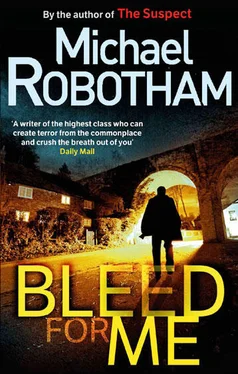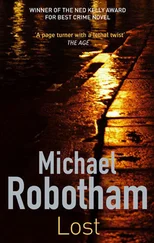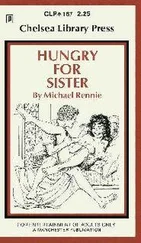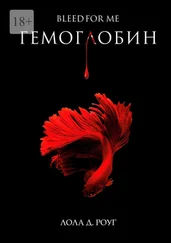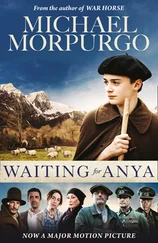‘Any of the neighbours report similar problems?’ asks Cray.
‘Nope, but one of them, Susan Devlin, says she saw Ray Hegarty arguing with someone outside his house about a week ago. It was about ten o’clock at night. The car had dropped Sienna home.’
‘Maybe it was the boyfriend,’ says Safari Roy, a small tanned detective with black hair parted to reveal his scalp. Roy’s nickname came from his lounge lizard clothes and his love of sunbeds.
‘He drives a Peugeot,’ replies Monk. ‘The neighbour said it was a silver Ford Focus.’
‘Talk to her again,’ says Cray. ‘Get a better description of the driver.’
Monk nods and finally asks the question on everybody’s lips. ‘How did it go downstairs, boss?’
The DCI looks over their heads at a weak shaft of sunlight that has found a way through the building’s defences.
‘She says her father was dead when she arrived home.’
Glances are exchanged between the assembled.
‘Our number one priority is to find the murder weapon,’ says Cray. ‘We’re going to search the house again - every cupboard, crawlspace and cistern; the flowerbeds, the compost bins, the incinerator. The same goes for the river. Retrace her steps. Turn over every rock and leaf. Find the blade.’
One of the officers raises his hand.
‘Are we getting any help?’
‘I’ve got twenty-four uniforms waiting downstairs and two dog teams. Make the time count. They turn back into plods at five o’clock.’
I look at my watch. It’s almost midday. I’ve missed my lecture but can still get to the university and do some work. At the same moment my mobile is singing. Julianne’s number lights up the screen.
‘How goes the trial?’ I ask.
‘We’ve been given the afternoon off.’
‘Bonus.’
‘You free for lunch? We can talk about Charlie.’
Talk is good.
She chooses an Italian restaurant, San Carlo in Corn Street, not far from the Corn Exchange. I arrive first and take a table by the window where I can watch for her. I order her a glass of wine.
Finally she’s here, dressed in a suede jacket, a scarf and a ribbed sweater. The waiters fall upon her like Elizabethan courtiers. She’s a beautiful woman. Good service is guaranteed.
‘Sorry I’m late,’ she says apologetically. ‘I had to make sure Marco was all right.’
‘Marco?’
‘My witness.’ Her brow furrows. ‘He’s nervous. I don’t know if he’s sleeping.’
‘Where is he now?’
‘The Crown Prosecution Service has a safe house.’
Her new haircut is sharp just below her jawline. I feel my mind taking a snapshot so I can study it later.
‘I’ve decided that jury trials are one big sociology experiment. You take twelve people who don’t know each other and have nothing in common and put them together for eight hours a day and then drip-feed them information, telling them not to discuss the case or read the papers or do their own research.’
‘You feel sorry for them.’
‘They saw the photographs of the fire today - three little girls and their parents - it was horrible.’ Julianne squeezes her eyes shut as if forcing the images to go away. They open again.
‘It’s not what I expected, you know. The trial. The defendants. Novak Brennan doesn’t look like a monster.’
‘There are no monsters.’
‘That’s what you tell Emma.’
‘It’s true.’
‘I know, but I expected him to be different. I feel as though he’s become familiar over this past week. I’ve seen him every day - always immaculately dressed and polite. He nods and smiles to the court staff. He bows when the jury enters the room. He has these long lashes like a girl and the bluest eyes. Arctic blue. I can almost see the snow blowing across them. Makes you wonder.’
‘About what?’
‘If he really firebombed that house . . . killed that family.’ She pauses, searching for words. ‘The other defendants look like thugs and bovver boys, grinning at each other and guffawing. Novak Brennan looks almost serene. He doesn’t fidget or squirm. He hardly shows any emotion at all, except when he glances at his sister in the public gallery. She’s been there every day.’
‘Which way are the jury leaning?’
Julianne shrugs. ‘It’s too early to tell. So far it’s all been about the prosecution case.’
She glances at the menu, giving me an opportunity to look at her without making her feel self-conscious.
‘Are you staring at me again?’
‘No.’
‘Good. So what are we going to do about Charlie?’
‘The police aren’t going to charge her.’
Surprise on her face. ‘That’s great. What happened?’
‘Ronnie Cray sorted it out.’
‘You made some sort of deal.’
I don’t answer. Normally, Julianne would fight against the idea, but this time she says nothing.
‘How is Sienna?’ she asks, switching her concern.
‘In a lot of trouble.’
‘Did she do it?’
‘I don’t know. Maybe she had a reason.’
Our meals have arrived. In the lottery of ordering, Julianne has again triumphed. Her choice looks healthier and more appetising. She’ll eat half and push the rest around her plate.
‘So what are we going to do about Charlie?’ she asks between mouthfuls.
‘She made a mistake.’
‘She broke the law! I talked to the school counsellor today and she recommended a therapist. He has a practice in Bath.’
‘I’m a psychologist.’
Julianne puts down her fork. ‘You’re her father. I’m sure there is some sort of conflict of interest there.’
She’s right, of course, but I still baulk at the idea of my daughter talking to a stranger, revealing things that she wouldn’t tell her parents.
‘What’s his name?’
‘Robin Blaxland.’
‘I could check him out . . . ask about him.’
‘And not scare him off?’
‘No.’
‘We still have to punish her,’ she says.
‘I saw the video of what happened. She tried to pay the driver but didn’t have enough money. She only panicked when he locked the doors. I think she was frightened it was going to happen again, the kidnapping.’
‘She should never have gone to the hospital without our permission.’
‘I know. Maybe we could ground her for a few weeks.’
‘School and home.’
‘Tough but fair.’
I like talking with Julianne like this - discussing anxieties and tiny victories, the happenstances of family life. Her long fingers toy with the stem of her wine glass.
‘Do you want to go to dinner on Saturday night?’ I ask.
‘I can’t.’
‘Why not?’
‘I’m going out.’
‘Who with?’
‘Harry Veitch.’
My heart jerks like a hooked fish. Harry is an architect. Rich. Divorced. One of his houses was featured on Grand Designs , which I guess makes him a celebrity of sorts, or a ‘person of note’. He has a daughter Charlie’s age living with her mother. I can’t remember her name.
‘How long have you been . . . ?’
‘We haven’t.’
‘So this is your first date?’
‘It’s not a date.’
There is an edge to her voice. She’s waiting for me to say something negative. I glance at my food, no longer hungry. I didn’t see this coming. Didn’t even contemplate it. Harry is older than I am - by at least ten years. He’s one of those big-boned former rugby players who struggle with their weight when they give up competing but never lose their self-belief.
Julianne speaks. ‘Harry wants to thank me for helping him choose a colour scheme for one of his new houses.’
‘That’s nice,’ I say.
There is a long embarrassed silence. The silence of separation. Worse - the silence of possible divorce. I can see the future flashing before my eyes. Julianne will marry Harry ‘big-boned’ Veitch and spend her new life choosing colour schemes for his McMansions. The girls will have a new father. At first they won’t like him, but Harry will bribe them and make them laugh. He’ll be jolly old Harry. Rich old Harry. Ho, ho, ho Harry. He laughs like that: ‘Ho, ho, ho.’
Читать дальше
